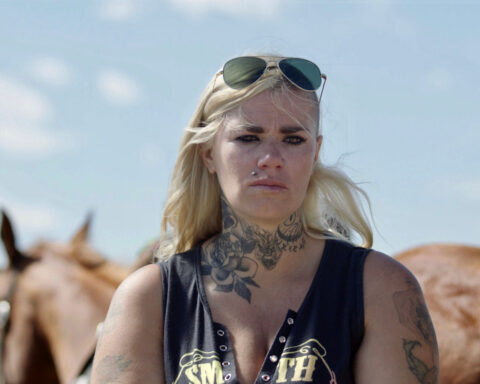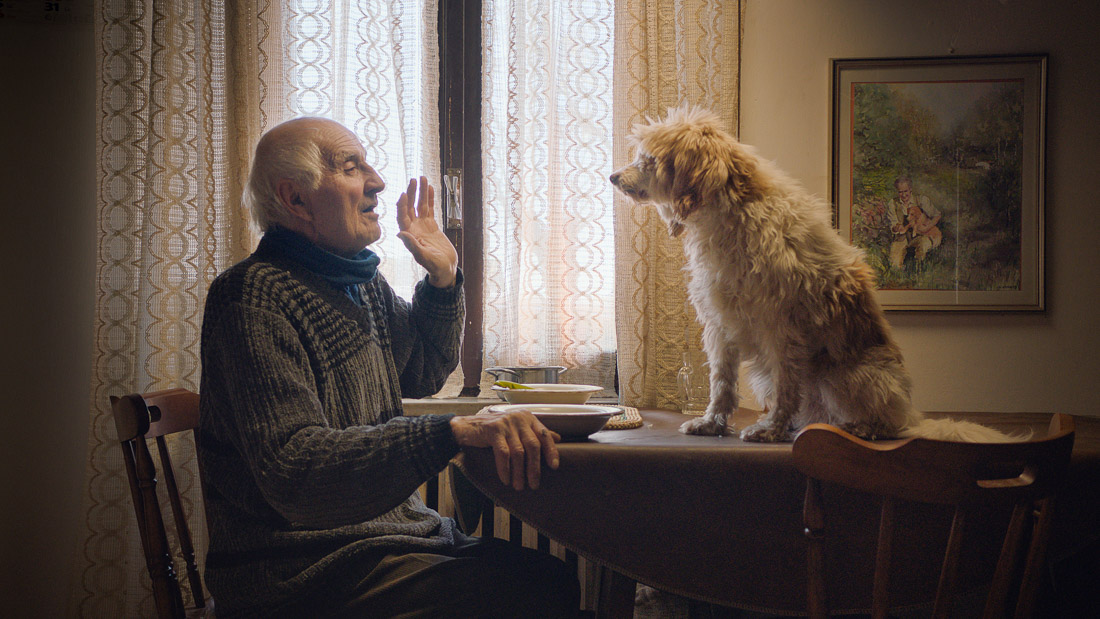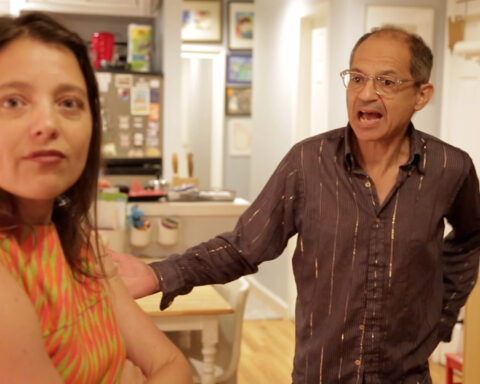Our latest dispatch on the documentary front at the 2020 Sundance Film Festival includes a Hollywood legend, a queer icon, the latest film from Ask Dr. Ruth director Ryan White, and a film that had our critic thinking deeply about a filmmaker’s proximity to her subject.
Natalie Wood: What Remains Behind
(dir. Laurent Bouzereau, Documentary Premieres)
Lauren Bouzereau is best known as the director of dozens of documentaries about the making-of movies that are often included as extras on home media releases dating back to the days of Laserdiscs. It’s perhaps no surprise, then, that What Remains Behind feels far from the journalistically precise documentary that would have benefited Nathalie Wood’s legacy. Instead it comes across as a superficial examination of the famed actress and the death that continues to overshadow her remarkable career.
Told using a structure that obfuscates more than it illuminates, the film spends considerable time on Wood’s personal life before cycling back to tell her film career in a similarly chronological fashion. The central interviewer is Wood’s daughter, Natasha Gregson Wagner, who clearly comes to the tale with little in the way of objectivity. Her questions to her father figures feel little more than publicity messaging. She rarely addresses key follow-up questions or presses statements that deserve more attention than they receive. The result feels far more of a commemoration of a dead parent than an actual look at the complexities of Wood’s life, career, and the murky circumstances surrounding her death.
What may for many be a charming remembrance feels self-serving and superficial, little more than a Wikipedia entry with visual aids consisting of brief film clips and talk-show like interviews between daughter and father. There was an opportunity to set the record straight, to introduce new audiences to this remarkable performer, and to go beyond the headlines to draw out deeper truths. The content is there to do so, and some of the provided details do manage to excavate briefly truths long hidden. However, the film ultimately frustrates far more than it fascinates, providing a dull and uninspired look at an actress, who was the opposite of these adjectives.
Assassins
(dir. Ryan White, Documentary Premieres)
At a festival where numerous documentaries lacked journalistic precision, it’s all the more gratifying that Ryan White’s Assassins exceeded its heightened ambitions. With remarkable access and an un-showy yet immensely captivating style, the film provides a definitive look into the assassination of Kim Jong-nam in a Malaysian airport, uncovering in exceptional detail the motivations, the characters involved, and the surreal circumstances surrounding two women caught in the middle of international intrigue.
White deconstructs the complex events and politics of the brazen murder, managing to highlight the various factions involved as well as the communities where the two accused women were drawn from and recruited. It highlights not only the overt aspects, such as the Shakespearean power games of the North Korean ruling family, but the paradoxes of Malaysian society in which systemic issues shield the truths around tragic occurrences. The result is a film that provides a deep and provocative look at the murder, as well as a detailed look at the naïveté of those who became involved with the plot. White empathetically provides details about the women and their actions while also contextualizing how their own poor decisions, fueled by poverty and social pressures, led to their participation in such a grizzly event. On levels both micro and macro, Assassins manages to illuminate, resulting in a truly fascinating film that feels like a spy thriller as much as an insightful work of non-fiction.
Into the Deep
(dir. Emma Sullivan, World Cinema Competition)
In 2017, I was on the documentary jury for the Reykjavik International Film Festival. One of our films in the slate was Amateurs in Space, a fine work that looked at two ambitious Danes intent on building a rocket, and how their friendship fell apart over the course of their efforts. One of the subjects, Peter Madsen, seemed as intense, quirky, and hubristic as any celebrated pioneering entrepreneur, with a swagger befitting the ambitions of his dreams. Around the same time that I was deliberating the film with fellow jury members, Australian director Emma Sullivan was in Denmark filming a new work about Madsen’s latest project. She was to be there to document the launch of a capsule into orbit, highlighting the committed crew that was pushing forward despite recent problems—including events that were highlighted in the previous film that she admitted (during her Sundance Q&A) to not being aware of when she set out to make her film. As she was shooting, international news reports announced that Madsen was implicated in the murder and dismemberment of a Wired Magazine reporter sent to cover his adventures.
Into the Deep provides a first person account of Madsen and his team members both before and after this horrific turn as Sullivan inadvertently became part of the story she was meant to cover. The interviews she conducted prior to the incident take on an entirely different tone when seen through the lens of what was to transpire. Through a well-paced narrative, Sullivan details the search for the body of the reporter, the subsequent arrest of Madsen, and the effect that these events had on the retinue of dreamers who helped bring his project to life. The men and women who volunteered to be part of the mission saw their lives shattered, and as audience members, we join them in trying to make sense of the madness of the situation.
Sullivan’s film deftly presents the core elements of Madsen’s actions and ideas, while at the same time making explicit the role that the filmmaker had in shaping the investigation against him. The case was helped immensely by the director’s on-camera conversations encouraging potential witnesses to testify, and making footage available to authorities that proved to be evidentially beneficial. Yet throughout the director is reluctant to make herself the focus of the story (a welcome reticence the likes of Michael Moore or Nick Broomfield often lack), instead trying to make sense of what’s in the end impossible to comprehend. Into the Deep is a thrilling work that feels more like a fictional thriller rather than the macabre, fascinating documentation of a murderer and the subsequent collapse of his team’s shared dreams.
Mucho Mucho Amor
(dir. Cristina Costantini and Kareem Tabsch, U.S. Documentary Competition)
The life and remarkable career of Walter Mercado feels too strange to have been made up, making this documentary about him feel even more engaging. Often draped in capes, with his hair brushed into a radiant golden nimbus, Mercado appeared for decades on television with an air of ostentation similar to that of a gloriously kitschy religious painting. Spouting self-help parables and astrological meanderings, his feel-good messages captivated millions within the Latin community until 2007, when he left the spotlight without notice.
The film traces his youth spent in the sugarcane fields of Puerto Rico, where his apparent healing abilities led those around him to laud the young boy for his mystical talents. Mucho Mucho Amor, a title borrowed from Mercado’s famous sign-off, traces his story up to his popular success as well as detailing why he gave it all up to retire to a quieter life on the island of his birth. We see Mercado surrounded by relatives and a long-time assistant, with each detailing in sometimes unflattering but always affectionate ways their views of this remarkable man.
The retrospective look at Mercado’s life is tied to a celebration that took place in Miami, which offered the filmmakers a perfect opportunity to lift the corner off his flowing robes to see what made the man tick. Though affectionate towards Mercado, co-directors Costantini and Tabsch, they refuse to shy away from asking indelicate questions of their subject. Was he the Hispanic Liberace, an early figure for the LGBTQ community to retroactively embrace? Many of his missteps were self-inflicted, and it’s clear his talent for communication didn’t match his mind for business. Still, rather than coming across as bitter or defeated, there is a well-rounded look at not only those that helped him in his dramatic rise as well as those same elements that precipitated his decline.
For those that grew up with Mercado this film is a celebration of the effect he had on the Latino community. For those new to his pageantry and playfulness, it’s an inviting and engaging look at a unique figure whose refusal to conform to public expectations continues to resonate in the Internet age. Mucho Mucho Amor is a film told with much, much love, and it’s hard not be swayed by the infectious enthusiasm of its subject or the deft craft exhibited by filmmakers who know how to tell a story about a fascinating figure.














